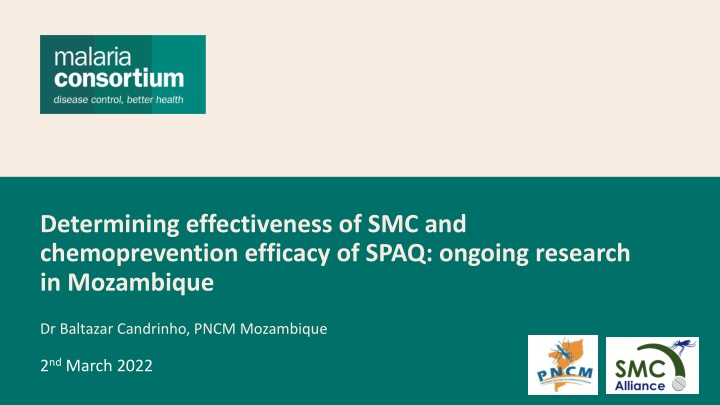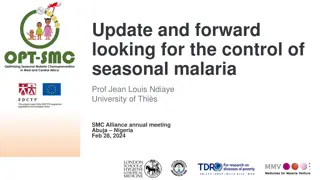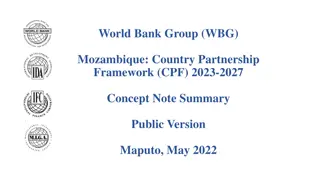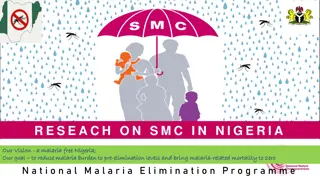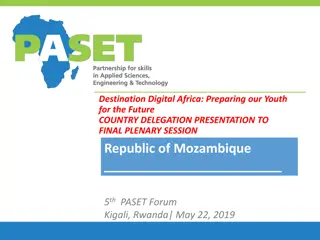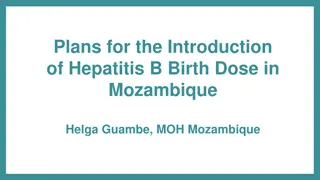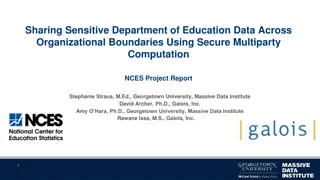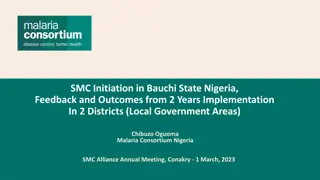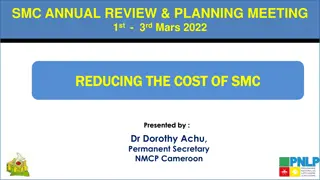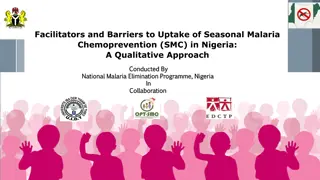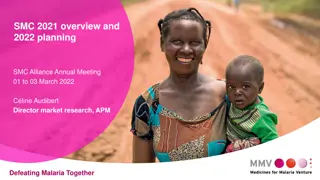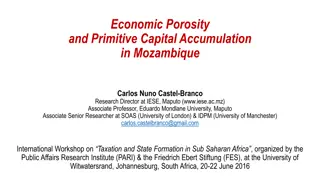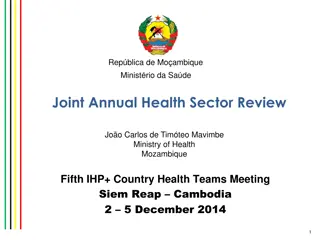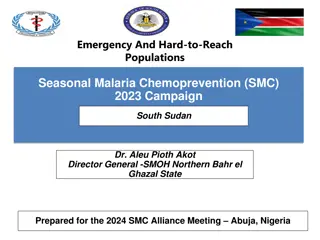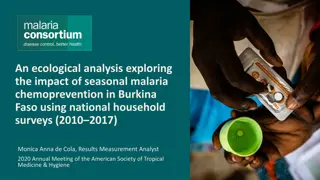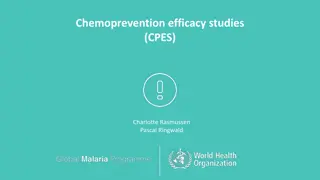Research on SMC and SPAQ Efficacy in Mozambique
Research, Mozambique, Malaria Control, Chemoprevention
Download Presentation

Please find below an Image/Link to download the presentation.
The content on the website is provided AS IS for your information and personal use only. It may not be sold, licensed, or shared on other websites without obtaining consent from the author.If you encounter any issues during the download, it is possible that the publisher has removed the file from their server.
You are allowed to download the files provided on this website for personal or commercial use, subject to the condition that they are used lawfully. All files are the property of their respective owners.
The content on the website is provided AS IS for your information and personal use only. It may not be sold, licensed, or shared on other websites without obtaining consent from the author.
E N D
Presentation Transcript
Determining effectiveness of SMC and chemoprevention efficacy of SPAQ: ongoing research in Mozambique Dr Baltazar Candrinho, PNCM Mozambique 2ndMarch 2022
Background Between November 2020 and February 2021, the National Malaria Control Programme and Malaria Consortium implementation study in Nampula. conducted an Four implemented, targeting 115,000 children in two districts. cycles of SMC with SPAQ were The study design was similar to the study conducted in Uganda in 2021.
SMC implementation study: phase 1 Like in Uganda, we found that SMC was safe, feasible and acceptable, with high coverage achieved. Children in the intervention arm of a non-randomised controlled trial were 86% less likely to develop clinical malaria than those in the control arm. Despite high SP resistance, one annual round of SMC did not have a negative impact on the resistance profile.
SMC implementation study: phase 2 We are now conducting phase 2 of this study. This administration children in four districts of Nampula. involved SMC to 115,000 Cycle 1 started in January 2022. We have just completed SMC cycle 2.
SMC implementation study: phase 2 In phase 2 of this study, we aim to gather more robust evidence of the effectiveness of SMC through a cluster-randomised controlled trial in support of a potential policy change in Mozambique. The study also aims to determine the chemoprevention efficacy of SPAQ when used for SMC in the study areas, as well as the extent to which chemoprevention efficacy is affected concentrations. by drug resistance and drug We will continue to monitor levels of parasite resistance to SP and AQ. We will also continue to track coverage, quality of SMC implementation and acceptability among the target population.
Cluster-randomised Controlled Trial (cRCT) Unit of randomisation: Community Participants: Children aged between 3 and 59 months Sample size: 2,850 children Intervention : Control SM (SPAQ) 1:1.5 No treatment Outcome measures cRCT Clinical malaria (primary outcome), before and after cross-sectional surveys & passive surveillance Severe malaria Severe anaemia Parasitaemia
Chemoprevention efficacy cohort study Participants: Children aged between 3 and 59 months Sample size: 500 children Intervention: Standard SPAQ administration through DOT (no control), blood sample collection over 28-day period of expected protection in first SMC cycle. Outcome measures: Chemoprevention failure and associated drug levels and pfdhr, pfdhps, pfcrt and pfmdr1 associated drug resistant genotypes
Next steps Data collection will conclude in May 2022. We will share results with the global malaria and SMC community. We hope to start the phased scale-up of SMC in Mozambique with the 2022/23 transmission season later this year.
Click to add text Click to add text Click to add text Click to add text Click to add text Thank you www.malariaconsortium.org www.malariaconsortium.org/smc Thank you
